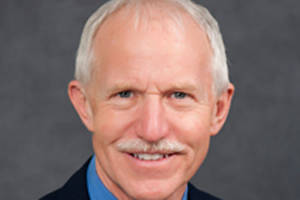Americans have known for decades about the wide variety of health problems caused by smoking cigarettes. But breathing other people’s cigarette smoke, sometimes called “secondhand smoke,” also causes health problems. Beginning Oct. 1, Alaska joined 25 other states in requiring smokers in public places, including worksites, to “take it outside” to protect the health of others.
These regulations are based on sound science, protect the health of us all, and save us money. In a state that prides itself on its independence and libertarian values, this law strikes the right balance between personal freedom and personal responsibility.
Secondhand smoke has been linked to increased risk of heart attack, stroke, lung cancer, and other respiratory diseases. This is not junk science or an idea coming out of a single study. For example, there are at least three lines of evidence that connect secondhand smoke with increased risk of heart attack: 1) multiple studies have documented a scientific link between inhaling others’ cigarette smoke and heart attack risk. 2) We understand the biology of this link. Cigarette smoke alters the blood clotting function and the lining of the heart’s blood vessels within minutes, increasing the risk of blocked arteries and limiting the supply of oxygen to the heart muscle, which causes a heart attack. This reaction begins even at low levels of exposure, so there is no safe amount of smoke exposure. 3) Places as diverse as Helena, Montana, Saskatoon, Saskatchewan, and the state of Arizona saw the rate of hospitalization for heart attacks drop by an average 17 percent within months of implementing indoor smoking regulations. These declines continued to grow with time. While the greatest protection was for persons who have never smoked, some protection was also noted for former smokers.
We are all concerned with the high costs of health care. Avoiding secondhand smoke protects the health and productivity of Alaskans, and it avoids the costs of illness for employers, government, and all private citizens. If Alaska experienced a similar decline in heart attack risk in the next five years as has been reported from other places, our health care system could avert $3.7 million dollars in treating cardiovascular diseases and the Alaska Medicaid program could avert over $500,000 in direct medical care costs.
While the new law on indoor smoking applies to public places and worksites, it is important to also keep our houses free of smoke — particularly if there are children in the home. Children exposed to secondhand smoke have more ear infections and asthma attacks, and babies who breathe secondhand smoke have greater risk of sudden infant death. With the oncoming influenza and respiratory syncytial virus (RSV) seasons, adults who smoke need to know that children who breathe secondhand smoke are more likely to be sent to the hospital when they have respiratory infections than children who are not exposed to secondhand smoke.
If you smoke, there are a number of things you can do to protect yourself and your loved ones. You can get help quitting by seeing your health care provider or by calling Alaska’s Tobacco Quit Line at 1-800-QUIT-NOW. If you are not ready or have been unable to quit, there is still a very important and responsible step you can take to protect others: Take it outside.
Jay C. Butler, MD is a physician board-certified in internal medicine, pediatrics, and infectious diseases, and is Alaska’s Chief Medical Officer.

